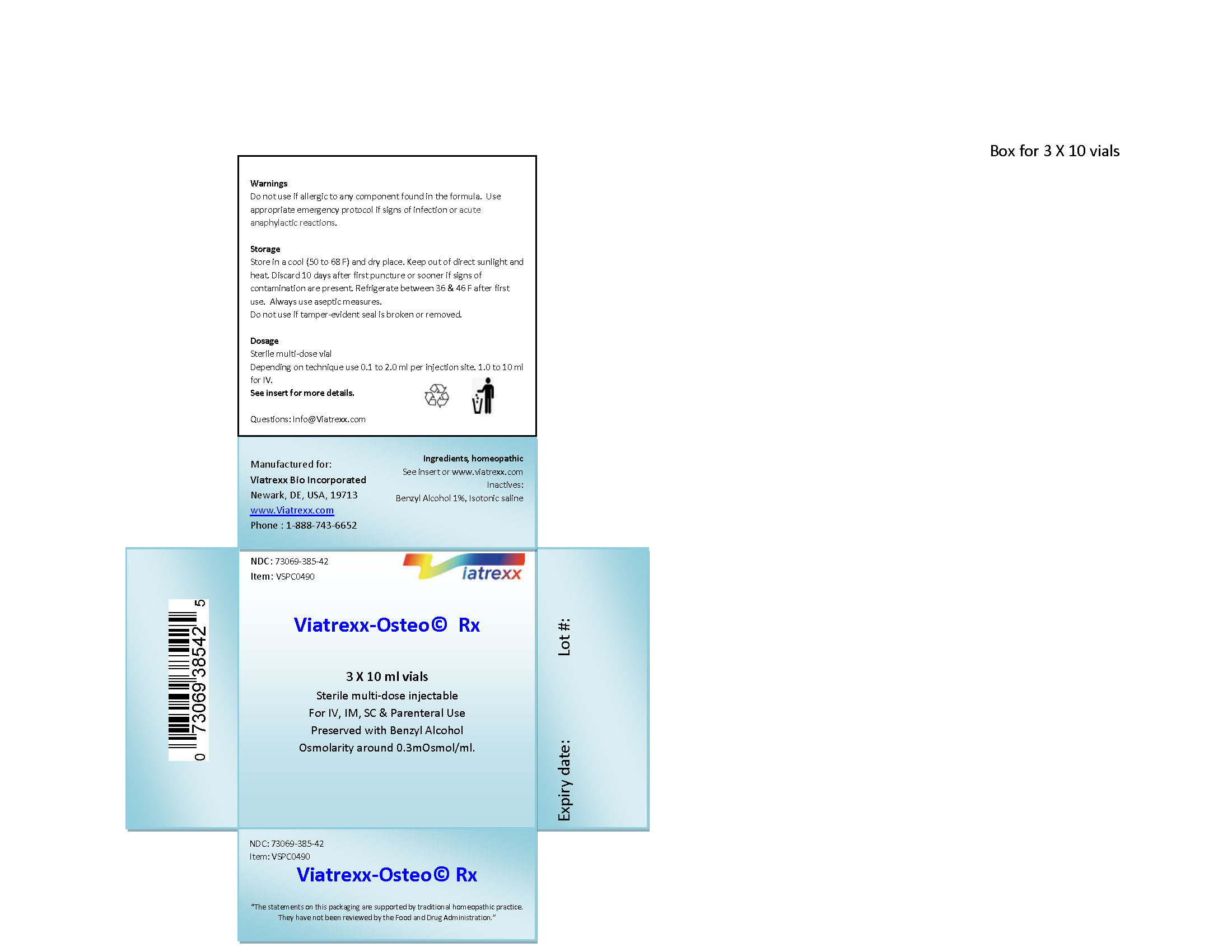Viatrexx-osteo while Breastfeeding

What is Viatrexx-osteo used for?
Is Viatrexx-osteo usage safe while breastfeeding? If a lactating mother is using it can there be any effect on growth or development of infant?
Nursing Mothers It is not known whether the benzyl alcohol or any of the ingredients is excreted in human milk. Caution should be exercised when products with benzyl alcohol are administered to nursing woman.
Viatrexx-osteo Breastfeeding Analsys
Calcitonin while Breastfeeding
SafeCAS Number: 9007-12-9
Hormone which is produced by the Thyroid gland as a polypeptide consisting of 32 amino acids that is used in the treatment of osteoporosis and other bone diseases and calcium metabolism.It is a natural component of breast milk as well as its predecessor, Procalcitonin, which is found in higher amount in milk than in plasma.Calcitonin levels increase during pregnancy and lactation.It has no effect on Prolactin and other Pituitary Hormones. Pharmacokinetic data (high molecular weight and rapid metabolism: Tmax and T1 / 2 short) makes it unlikely an excretion into breast milk in significant amounts. Because of a protein nature it is inactivated in the GI tract and hence not absorbed, so that their oral bioavailability is negligible, being unlikely any passage to the infant plasma, from ingested milk. An infant whose mother was treated with calcitonin every other day (plus azathioprine, warfarin, prednisone, acetaminophen, calcitriol, calcium and vitamins E and C) showed no problems after one year of lactation.
Viatrexx-osteo Breastfeeding Analsys - 2
Calcitonin while Breastfeeding
CAS Number: 9007-12-9; 47931-85-

Little information is available on the clinical use of calcitonin during breastfeeding; however, calcitonin is a normal component of human milk where may play a role in development of enteric neurons in the breastfed infant.[1][2][3] Because it is a large peptide, absorption by the infant is unlikely because it is probably destroyed in the infant's gastrointestinal tract. If calcitonin is required by the mother, it is not a necessarily reason to discontinue breastfeeding Calcitonin therapy is sometimes used to treat symptomatic postpartum osteoporosis, which is often treated in part by stopping lactation to reduce calcium loss.[4][5] There is no evidence that exogenous calcitonin decreases serum prolactin or lactation in nursing mothers.
Vitamin d while Breastfeeding
CAS Number: 67-97-0 50-14-6
Vitamin D is a normal component of human milk. Daily maternal vitamin D supplementation in the 400 to 2,000 IU range produces milk concentrations that are inadequate to deliver the daily requirement to an exclusively breastfed infant, and inadequate to correct pre-existing infant vitamin D deficiency through breastfeeding alone. Breastfeeding mothers who take vitamin D supplements in this range should give their infants a daily vitamin D supplement of at least 400 IU to meet pediatric nutritional guidelines.[1][2][3][4][5] Daily maternal vitamin D dosages at or above 4,000 IU achieve milk levels can potentially meet the daily infant goal intake of at least 400 IU, depending on the mother's underlying vitamin D status and daily infant milk intake. Obese mothers may have higher requirements. Holder pasteurization decreased median levels of the major forms of vitamin D in breastmilk by 20% in one study.[6]

I already used Viatrexx-osteo and meanwhile I breastfed my baby should I be concerned?
Not much study has been done on safety of Viatrexx-osteo in breastfeeding and its ingredients. Even we do not have complete information about usage of Viatrexx-osteo in breastfeeding so at this point a trained medical professional could be your best bet. If you observe anything abnormal with your baby please contact 911.
I am nursing mother and my doctor has suggested me to use Viatrexx-osteo, is it safe?
If your doctor considers Viatrexx-osteo safe enough to prescribe for you that means its benefits should outweigh its known risks for you.
If I am using Viatrexx-osteo, will my baby need extra monitoring?
We are not Sure, Please check with your healthcare provider or doctor.
Who can I talk to if I have questions about usage of Viatrexx-osteo in breastfeeding?
US
National Womens Health and Breastfeeding Helpline: 800-994-9662 (TDD 888-220-5446) 9 a.m. and 6 p.m. ET, Monday through Friday
UK
National Breastfeeding Helpline: 0300-100-0212 9.30am to 9.30pm, daily
Association of Breastfeeding Mothers: 0300-330-5453
La Leche League: 0345-120-2918
The Breastfeeding Network supporter line in Bengali and Sylheti: 0300-456-2421
National Childbirth Trust (NCT): 0300-330-0700
Australia
National Breastfeeding Helpline: 1800-686-268 24 hours a day, 7 days a week
Canada
Telehealth Ontario for breastfeeding: 1-866-797-0000 24 hours a day, 7 days a week
